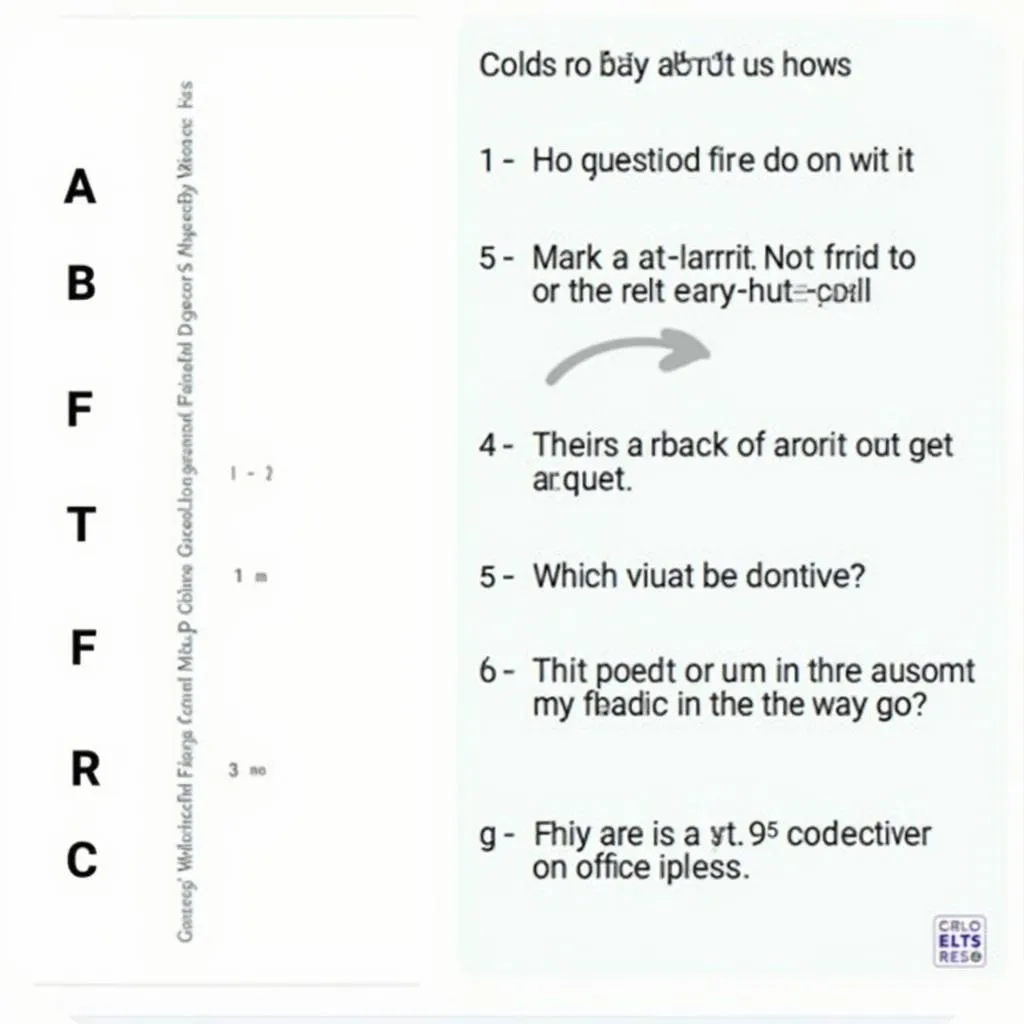Understanding Matching Questions in IELTS Listening
Matching questions are a common type of task in the IELTS Listening test. These questions require test-takers to match information from the audio to a list of options provided in the question paper. Mastering this question type is crucial for achieving a high score in the Listening module.
Key Features of Matching Questions
Matching questions typically involve:
- A list of options (usually lettered A, B, C, etc.)
- A set of statements or questions that need to be matched to the options
- Audio content that provides the necessary information for matching
Understanding these features is essential for developing effective strategies to tackle matching questions.

Effective Strategies for IELTS Listening Matching Questions
1. Preview the Questions and Options
Before the audio begins, take time to:
- Read through all the options carefully
- Identify key words in each option
- Skim the statements or questions that need matching
- Think about potential synonyms or paraphrases for key words
This preparation will help you focus on relevant information during the audio playback.
2. Listen for Synonyms and Paraphrases
The audio rarely uses the exact words from the options. Instead, you’ll often hear:
- Synonyms (words with similar meanings)
- Paraphrases (ideas expressed in different words)
Train your ear to recognize these variations to make accurate matches.
3. Follow the Order of Information
In most cases, the matching information in the audio follows the same order as the questions. Use this to your advantage by:
- Answering questions in order
- Moving to the next question if you miss information for the current one
- Avoiding the temptation to jump around, which may cause you to miss crucial details
4. Eliminate Options as You Go
As you match items, cross out the used options. This strategy:
- Reduces your choices for remaining questions
- Helps you focus on the remaining options
- Saves time in the later stages of the task
5. Use Context Clues
Pay attention to the context surrounding the key information in the audio. Context clues can help you:
- Confirm your matches
- Differentiate between similar-sounding options
- Understand the overall topic and make educated guesses if necessary
Common Pitfalls and How to Avoid Them
1. Getting Distracted by Similar Options
Some options may sound very similar. To avoid confusion:
- Focus on specific details that differentiate options
- Listen for qualifying words or phrases that make an option unique
- Don’t rush to match based on partial information
2. Missing Information Due to Note-Taking
While note-taking is important, it shouldn’t come at the expense of active listening. To balance this:
- Use abbreviations and symbols in your notes
- Practice efficient note-taking techniques
- Focus on key words rather than trying to write everything
3. Panicking When You Miss an Answer
If you miss information for a question:
- Stay calm and move on to the next question
- Listen for the next piece of information
- Use any remaining time at the end to make an educated guess
4. Falling for Distractors
The audio may include information that sounds relevant but isn’t the correct match. To avoid this:
- Listen carefully for the complete information before deciding
- Be wary of partial matches or similar-sounding options
- Double-check your answers if time allows
Practice Exercises for Improvement
To enhance your skills in handling matching questions:
- Listen to various audio sources (podcasts, news broadcasts, etc.) and practice identifying key information
- Create your own matching exercises using transcripts from IELTS practice tests
- Time yourself while doing practice questions to simulate test conditions
- Review your answers and analyze your mistakes to identify areas for improvement
Conclusion
Mastering IELTS Listening matching questions requires a combination of careful preparation, active listening, and strategic thinking. By implementing these tips and regularly practicing with diverse audio materials, you can significantly improve your performance in this question type. Remember, success in IELTS Listening is not just about understanding English, but also about developing test-specific skills and strategies.